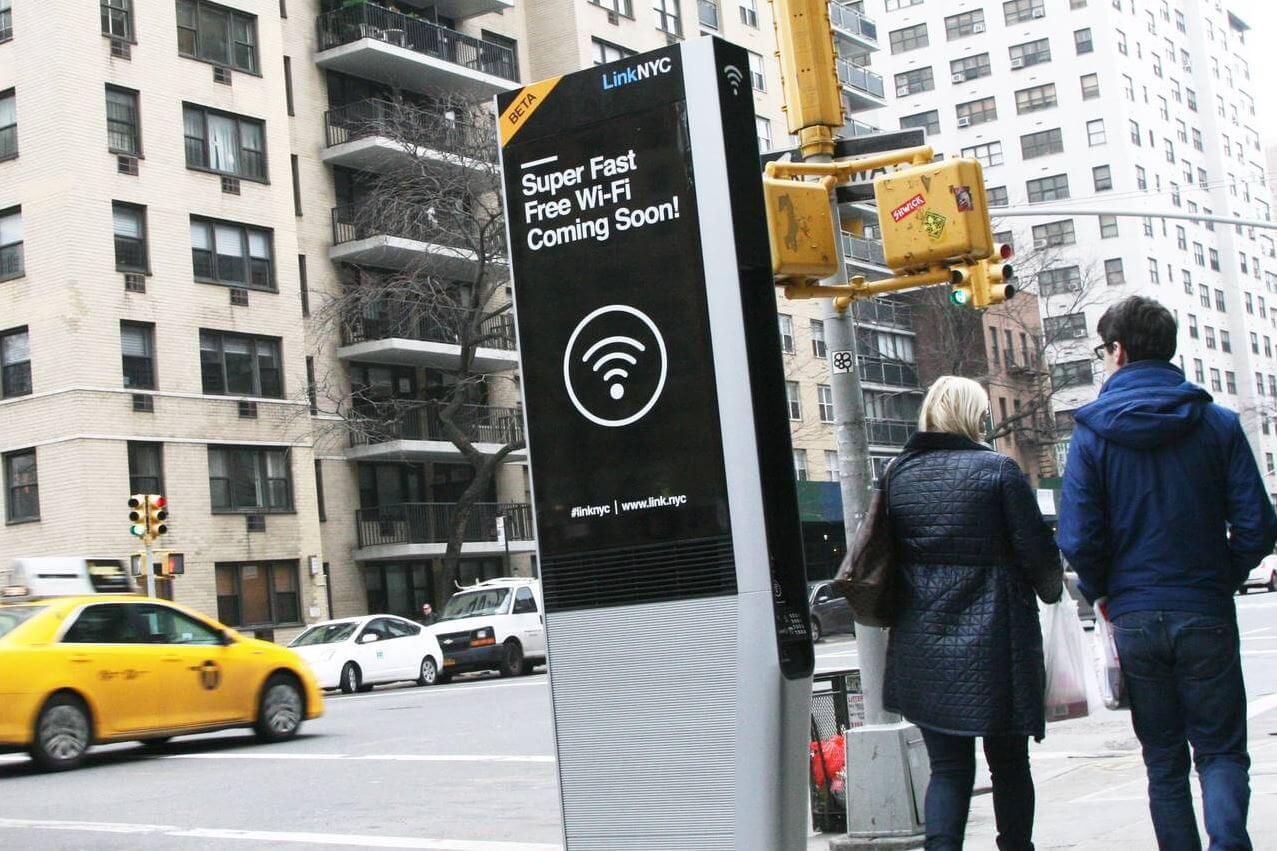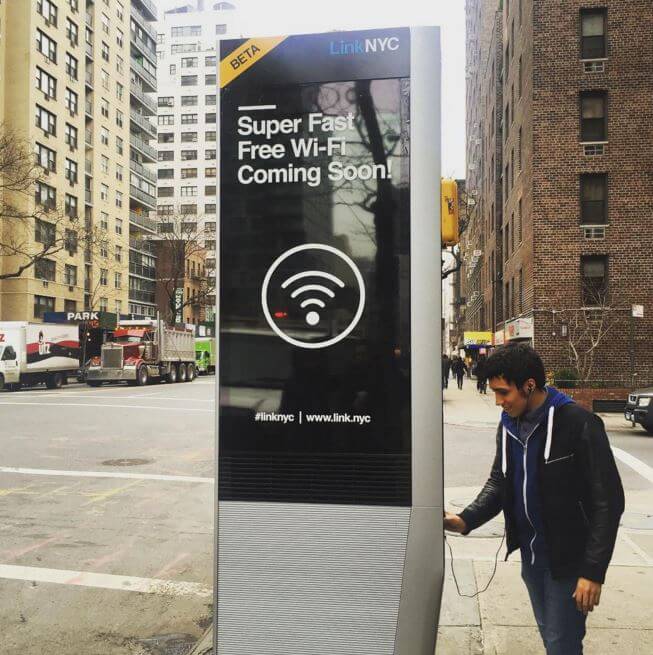The lowly pay phone is getting a high-tech makeover, a change that aims to challenge the speeds and high prices charged by wireless carriers.
New York City will begin this month replacing thousands of pay phones with free Wi-Fi hot spots. The city expects to have 500 hot spots installed by July, and eventually about 7,500 units will be replaced.

Photo: LinkNYC
The hot spots will sit atop a 9.5-foot tall box with electronic screens on each side to display advertising. Sandwiched between the sidewalk ads will be an Android tablet that can be used to place free phone calls and surf the Web.
The advertising-supported project, called LinkNYC, is being run by CityBridge, a joint venture between three tech companies: smartphone chip maker Qualcomm Inc.,networking company CIVIQ Smartscapes and Intersection, which has backing from Google parent company Alphabet Inc. CityBridge says it is investing more than $200 million in the project.
Many cities have tried installing free public Wi-Fi, but it often didn’t work well enough to draw many users because speeds were slow or the experience was bogged down by requiring users to watch an ad before connecting.
CityBridge says its Wi-Fi will deliver broadband speeds of 1,000 megabits a second, about 100 times typical speeds provided by wireless carriers. Users won’t be forced to sit through ads on their mobile devices to log on and devices will connect automatically after a user signs in the first time.
Free abundant Wi-Fi at those speeds could give people living in New York City, the country’s largest market, a reason to spend less on wireless data services from carriers such as Verizon Communications Inc. and AT&T Inc., said Craig Moffett, senior research analyst at MoffettNathanson.
“There was a time when investors reacted with alarm over announcements like these,” Mr. Moffett said. “It’s possible that investors have grown complacent after seeing so many false starts. But there’s a reasonable argument that this time really will be different.”
In the short term, free Wi-Fi might help carriers by taking some strain off their overloaded networks. The city is especially difficult to cover because there are so many skyscrapers.
In the long run, however, Wi-Fi poses a more fundamental threat. Cable companies, such as Comcast Corp., have begun installing hundreds of thousands of public access points that their home broadband customers can access free.

Photo: LinkNYC
Services such as Republic Wireless and Google’s Project Fi—which are a fraction of the cost of the major carriers—primarily run over Wi-Fi and fall back on carrier networks only when Wi-Fi isn’t available.
“This is creating all kinds of competition,” said Colin O’Donnell, CityBridge’s chief technology officer. “This is going to set a new standard for speed, drive pricing competition, and set new expectations for data caps.
We “view this as a complimentary service,” said an AT&T spokesman. Verizon didn’t immediately respond to requests for comment.

Photo: LinkNYC
CityBridge plans to make money via advertising on the billboards. During its 12-year contract, CityBridge will pay the city $500 million or a 50% revenue share, whichever is greater. The company says it has several advertising contracts in place, but declined to identity the marketers.
New York City earned $17.5 million in 2014 from its expiring pay phone contract, primarily from ads on the side of the pay phones, said Stanley Shor, an assistant commissioner at the City’s Department of Information Technology and Telecommunications.
The city also hopes the project will make a dent in the digital divide. About 27% of New York households don’t have broadband at home, according to a 2014 report from the New York City Comptroller.
New York City has been trying to figure out what to do with its pay phones for years, as the rise of cellphones has made them less useful and they became a target for vandals.
“For many years, the pay phones became less and less of a benefit to the people of this city,” Mr. Shor said. “Every time I told someone I was in charge of pay phones, they would say, ‘Oh can you get rid of the pay phone in front of my store?’”
By Ryan Knutson
Via http://www.wsj.com/articles/new-york-city-to-replace-pay-phones-with-free-wi-fi-1451970003

